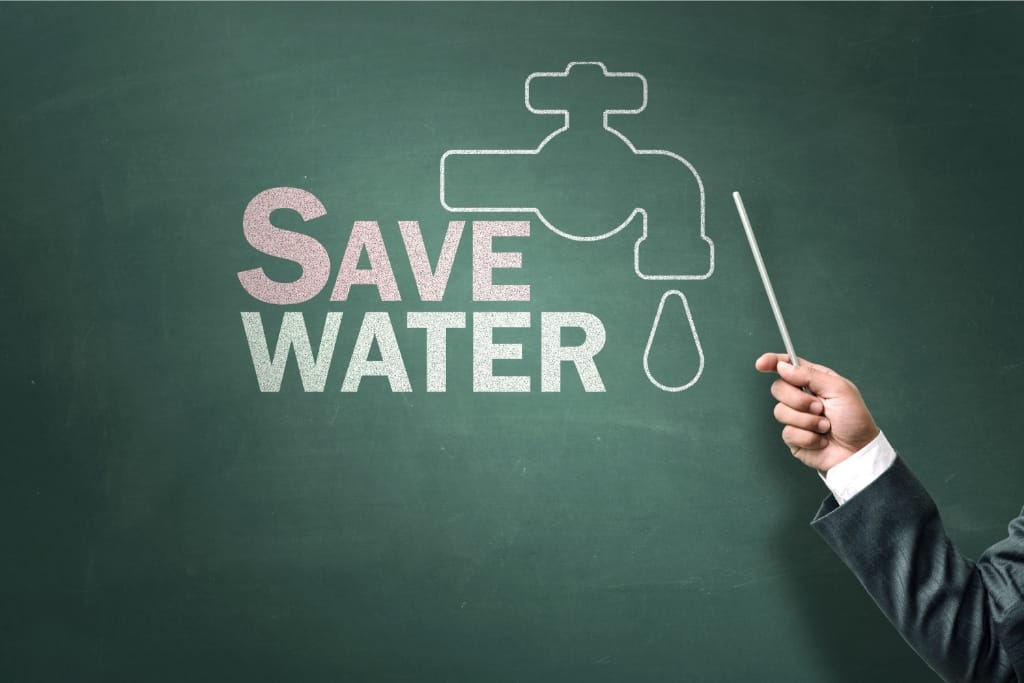Water is one of our most precious resources, yet it's often taken for granted.
Adopting small, creative changes in daily routines can have a significant impact on conserving water, helping both the environment and future generations.
Whether at home, work, or in your community, there are countless ways to make a difference.
Explore these 15 innovative ideas to start building sustainable water-saving habits today!
1)) Install Low-Flow Showerheads
One of the easiest and most effective ways to reduce water usage is by installing low-flow showerheads.
These devices are designed to use significantly less water than traditional showerheads without compromising water pressure, making them a perfect solution for eco-conscious households.
Many modern low-flow showerheads are equipped with adjustable settings, allowing a personalized and comfortable shower experience.
By making this simple upgrade, you can lower your water consumption, reduce utility costs, and take an important step toward a more sustainable lifestyle.
2)) Use Rain Barrels For Watering
Collecting rainwater with barrels is an efficient and environmentally friendly way to water your garden and outdoor plants.
By capturing rainwater runoff from your roof, you can store it for later use during dry spells, reducing your reliance on municipal water supplies.
Rain barrels come in various sizes and are easy to install, making them a practical solution for any home.
Utilizing rainwater not only helps conserve this valuable resource but also cuts down on your water bill, offering a win-win for your wallet and the environment.
3)) Turn Off The Tap While Brushing Teeth
One of the simplest ways to save water is by turning off the tap while brushing your teeth.
Leaving the water running for two minutes can waste up to four gallons per session, but this habit is easy to break with a conscious effort.
Instead, wet your toothbrush at the start, turn off the faucet, and only turn it back on when it’s time to rinse.
This small adjustment reduces water waste significantly without requiring extra time or effort.
By adopting this practice, you'll not only conserve water but also contribute to creating a more sustainable future.
4)) Fix Leaky Faucets Promptly
A dripping faucet may seem like a minor inconvenience, but it can waste a significant amount of water over time.
Even a slow leak can add up to gallons of wasted water every day, increasing your water bill and depleting natural resources.
By promptly fixing leaky faucets, you not only prevent unnecessary water loss but also avoid potential damage to your plumbing system.
Whether it’s replacing a worn-out washer or tightening a valve, addressing leaks is a simple yet impactful step toward water conservation and a more eco-friendly household.
5)) Choose Drought-Resistant Plants
Choosing drought-resistant plants for your garden is a smart, water-saving strategy that also enhances the beauty of your outdoor spaces.
These plants are naturally adapted to thrive in dry conditions, requiring less irrigation and maintenance compared to traditional flora.
Popular choices include succulents, lavender, and ornamental grasses, which not only add texture and color but also support local pollinators like bees and butterflies.
By opting for drought-resistant landscaping, you can create a vibrant, low-maintenance garden while conserving water and promoting environmental sustainability.
6)) Use Dishwashers Efficiently
Running your dishwasher efficiently is a simple yet impactful way to conserve water in your home.
Modern dishwashers use significantly less water than washing dishes by hand, especially when used with a full load.
Scrape off food scraps instead of pre-rinsing before loading dishes, as most dishwashers are designed to handle light residue.
Choose the “eco” or water-saving mode if your appliance has one, to maximize its efficiency.
By making small adjustments to how you use your dishwasher, you'll save both water and energy, contributing to lower utility bills and a more sustainable lifestyle.
7)) Collect Greywater For Reuse
Reusing greywater is an innovative and efficient way to conserve water and reduce waste in your household.
Greywater refers to lightly used water from sources like sinks, showers, and washing machines.
With proper filtration and treatment, this water can be repurposed for non-potable tasks such as irrigating your garden or flushing toilets.
Installing a greywater system can be a straightforward process and offers long-term benefits by lowering your water usage and environmental footprint.
By incorporating greywater collection into your routine, you can make a meaningful impact on water conservation efforts while cutting down on utility costs.
8)) Time Lawn Watering Wisely
Watering your lawn at the right time can significantly improve water efficiency and promote healthier grass.
Early morning is the ideal time to water, as the cooler temperatures and lower wind speeds help minimize evaporation.
Avoid watering during the heat of the day, when much of the water will evaporate before it reaches the roots, and in the evening, which can lead to fungal growth due to prolonged moisture on the grass.
By timing your lawn watering wisely, you ensure optimal hydration for your lawn while conserving water and fostering a more sustainable yard care routine.
9)) Sweep, Don’t Hose Driveways
Cleaning your driveway with a push broom instead of a hose is a simple way to save large amounts of water while keeping your outdoor areas tidy.
Using a hose to wash driveways can waste hundreds of gallons of water, especially for tasks that can be just as effectively handled with manual sweeping.
Brooms are more than adequate for removing dirt, leaves, and debris from paved surfaces, and they don't contribute to water waste or runoff that may carry pollutants into storm drains.
By choosing a broom over a hose for driveway maintenance, you help conserve water and protect local ecosystems from unnecessary pollution.
10)) Shorten Shower Time
Reducing your shower time is one of the simplest and most effective ways to conserve water in your daily routine.
Even cutting just a few minutes off a shower can save gallons of water, especially if multiple family members adopt this habit.
Installing a timer or setting an alarm can help you keep track of time and stick to shorter showers.
Using low-flow showerheads further enhances water-saving efforts by reducing the amount of water used per minute without compromising water pressure.
By shortening your shower time, you actively contribute to conserving a precious natural resource while lowering your water bill and fostering environmentally conscious habits.
11)) Wash Full Loads Of Laundry
Washing full loads of laundry is a practical and efficient way to conserve water and energy at home.
Modern washing machines are designed to use a fixed amount of water per cycle, regardless of the load size.
Running the appliance with a full load maximizes its efficiency and reduces the number of cycles required over time.
To further enhance water conservation, use the appropriate wash cycle for your clothing type and choose energy-efficient settings whenever available.
By ensuring that each laundry load is full, you minimize waste, lower utility costs, and make laundry day more eco-friendly.
12)) Use Mulch To Retain Moisture
Applying mulch to your garden is an effective strategy for conserving water and promoting healthy plant growth.
Mulch acts as a protective layer over the soil, reducing evaporation by retaining moisture and regulating soil temperature.
It also minimizes weed growth, which helps prevent competition for water and nutrients among plants.
Organic mulches, such as wood chips, straw, or shredded leaves, decompose over time, enriching the soil with nutrients.
By using mulch in your garden, you create a more sustainable and thriving environment for your plants while reducing the need for frequent watering.
13)) Cover Pools When Not In Use
Covering your pool when it is not in use is a highly effective way to conserve water by reducing evaporation.
Pools lose significant amounts of water daily due to exposure to sun and wind, especially during hot weather.
A well-fitted pool cover prevents this loss and can save thousands of gallons of water each year.
It helps maintain water quality by keeping out debris, reducing the need for frequent cleaning and chemical treatments.
Using a pool cover also helps retain heat, saving energy on water heating.
By covering your pool when it’s not in use, you reduce water waste, cut down on maintenance efforts, and make your pool more environmentally friendly.
14)) Install Water-Efficient Toilets
Installing water-efficient toilets is a smart and impactful way to lower water consumption in your household.
Older toilets can use up to 6 gallons of water per flush, whereas modern, water-efficient models such as dual-flush or low-flow toilets significantly reduce water usage, using as little as 1.28 gallons per flush.
These newer models maintain effective performance while conserving large amounts of water over time.
Upgrading to a water-efficient toilet not only helps preserve a critical natural resource but also reduces your water bills and promotes sustainable living practices.
15)) Educate Family On Water Use
Educating your family on water use is essential for fostering long-term, sustainable habits that benefit both your household and the environment.
Start by discussing simple ways to conserve water, such as turning off faucets while brushing teeth, fixing leaks promptly, and using water-saving appliances.
Encourage children to understand the value of water and involve them in fun, educational activities that highlight its importance.
Setting a good example and sharing information about local water conservation efforts can also inspire mindful behaviors.
By educating your family on proper water use, you empower them to make thoughtful choices and collectively reduce your household's water consumption.
Conclusion
Conserving water is a crucial step toward protecting one of our planet's most valuable resources.
By implementing simple yet effective practices, like washing full loads of laundry, using mulch in your garden, covering pools, and installing water-efficient fixtures, we can significantly reduce water waste.
Small actions, especially when shared across families and communities, can lead to lasting environmental benefits.
Together, through awareness and sustainable habits, we have the power to secure clean water for future generations while fostering a healthier planet for all.
Download Our Free E-book!








